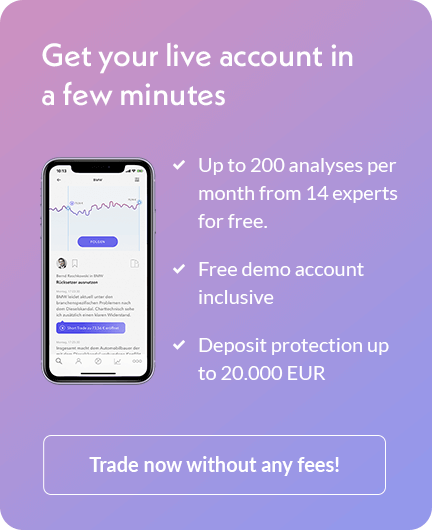Forex vs Stocks - Which is more profitable?
As the two most popular global markets, you’ll often hear about forex versus stocks trading. While comparable, forex and stocks do differ and one may suit your trading style much more than the other. You could very well choose to start trading in both forex and stock markets.
Forex versus stocks is a question of personal preference. While the primary reason influencing whether the market you chose to trade should be the interest you have in that particular asset, be it currencies in the forex market or company shares in the stock market, there are many other factors that may affect your decision. So let’s have a closer look at money trading on forex and stock markets.

What is forex versus stocks?
So what is the difference between forex versus stocks? The very first difference is quite obvious – what you are trading! Forex, short for Foreign Exchange, is the largest global marketplace with a daily average turnover of forex trades of $6 trillion. The forex market is the conversion of one currency into that of another on the currency market. For example, when trading forex, forex traders buy a foreign currency on to use overseas while on holiday or to trade a GBP/USD currency pair.
The stock market, however, is where a stock trader is involved in the buying and selling of ownership in a company and is a significantly smaller market in terms of value. Currently the value of stock trading runs at roughly $200 billion per day. The units of measurement for ownership are known as shares and you can start trading stocks on places like the New York Stock Exchange.
Why trade forex versus stocks?
Once you learn how to trade forex and penny stocks, you can choose which to trade. There are a few different factors affecting why you should trade Forex over penny stocks or vice-versa. There are different factors affecting why you can trade USD/JPY or trade GBP/USD more often with firms that offer forex trading on major currencies than companies listed on the London Stock Exchange.
Market trading hours
The forex market is a truly global marketplace as it is accessible from anywhere in the world and trading on major currencies is available 24 hours a day, 5 days a week. Day trading can occur over several time zones, meaning when one zone closes another will be open. For example, when trading during London hours closes, the marketplace in Sydney will be in full flight. Marketplace zones can overlap too, resulting in a highly active foreign exchange for forex traders, such as when London and New York trading hours overlap around 08.00am (NY time).
The stock market has a significant limitation on trading time. Companies are listed on specific stock exchanges, so stock traders can only trade certain penny stocks within the designated hours of that exchange. This means that stock traders can only trade on a single exchange for 8 hours a day. While you can trade EUR/USD all day, the same cannot be said if you want to buy Apple stock.
Volume
You surely haven’t missed the trading volume difference – $6 trillion vs $200 billion. When it comes to sheer market volume there is no competition between forex vs stocks. That high trading volume does come with some pretty big advantages. High volume on the largest financial market typically means orders are executed much easier than stocks and at a price closer to what the trader wants.
Liquidity
High volume also typically means high liquidity. With high liquidity also comes tighter spreads with much lower transaction prices. Therefore forex spreads are much lower than stocks meaning the difference between the bid and ask price is much closer.
While the forex market is considered to have high liquidly overall due to such an active 24/5 market, the stock market is not so straightforward. Liquidity in the stock market can vary greatly between individual stocks – A particular stock that does not have sufficient volume will have low liquidity as it cannot be bought and sold as easily as a stock trading at large volumes.
Why trade stocks?
You may wish to trade stocks simply because you have no interest in forex and that’s perfectly reasonable. Why trade forex if your motivation to trade is based on companies and businesses? You even simply want to invest in a concept you are passionate about such as electric cars and want to buy Tesla stock.
Diversify
It’s often a great idea to mix up your investment portfolio as a means to provide a safeguard should another type of investment fail. If you are a forex trader, for example, also trading in stocks can ensure you don’t put all of your eggs into one basket, as they say.
Forward thinking – The long-term trader
Some traders don’t have the time to spend staring at analytical data all day. Perhaps you still hold a day job and just want your money to work for you? Stock trading suits the long-term trader who aims to hold a position for a period of months or even years. This style of trading often requires much more capital in order to cover your investment during volatile movements. However, stock trading in this fashion can be very profitable. Imagine investing in Apple stock when the company first went public in 1980 and holding onto the stock past the launch of the iPhone!
Forex versus stocks day trading
To begin, it cannot be understated that to properly day trade in the stock market, you’re going to require some significant capital for all of the different stocks and commodities trading opportunities. To be a “pattern day trader”, that is to execute more than 4 trades per business week, you’ll need $25,000 starting capital.
If you are unable to muster the capital required or you cannot manage to be available during the specific stock market trading hours, then FX trading may be the better option for electronic trading. Key differences include the fact that forex day trading exists 24 hours a day, 5 days a week without specific trading sessions. You can trade on future price movements on one currency or currency pair whenever you want, rather than the specific 8-hour window of trading sessions offered by stock exchanges.
Forex day trading also requires most forex brokers to have a lot less capital than stock market trading. Many forex traders begin their day trading prospects on the FX market with as little as $100 and capital of only $500 still allows for a great amount of flexibility when trading.
Trading in CFDs
Trading in Contracts for Difference (CFD) is a popular way to trade both forex and stocks since the emergence of the internet in 1990. CFD trading differs from trading currency pairs or trading shares as you never actually own the asset that you trade. A CFD trade is an agreement to exchange the difference in value of an asset between the entering and exiting the trade – or basically it is a wager that an asset’s value will go up or down.
CFD advantages
One of the biggest advantages and risk factors with CFD trading is the use of leverage. Leverage allows traders of forex or stocks to open large positions with less capital than required. CFD is an advantageous option for speculative stock trading, whereby a trader could open a short position if they believe a company’s share price is expected to drop. Trading forex CFDs have many advantages also. You can avoid fees that forex brokers charge along with issues associated with currency ownership such as differing exchange rates, unique legislative frameworks, and even different tax treatments.
CFD disadvantages
There is always a high risk of losing when trading CFDs. The use of leverage with both forex and stocks when trading CFDs is always a riskier endeavour than asset ownership and the lower cost to access the markets runs the risk of overtrading.
Which will profit most?
Of course the most important question on a young trader’s mind – Forex vs stocks, which is more profitable? Unfortunately, the obvious answer is that there is no clear conclusion of which instrument is more profitable than the other. When it comes to choosing what to trade, one should consider more important factors such as personality type, capital, level of risk, and overall financial goals.
With that being said, if your trading goal is to make frequent but small profits using short-term strategies, then forex will typically be more profitable than trading the stock market. This is because the high volatility of the forex market can result in easier profits to a well-trained forex trader who is happy to trade on not just one economy.
However, if you are a long-term trader, with the goal of holding positions for an extended period of time, then the stock market may be the option for you. The stock market is well regulated and arguably the safer option that can see very large profits, but over a much longer period of time.
When it comes to forex v stocks trading, both financial markets offer potential opportunities to make money. Both forex and stock market trading have their own inherent risk levels and will be overseen by the relevant financial industry regulatory authority.
Which is easier to trade?
From a technical standpoint, thanks to extensive education platforms and the accessibility of trading education tools, trading forex or blue chip stocks with a higher trading volume is relatively easy. Learning how to buy stocks can be completed from your own home without extensive technical analysis. Using an online trading platform can see even the most novice of traders buying or selling a position in a couple of clicks without the need for too many complex instruments or an overarching trading strategy.
However, it is more difficult to be a successful trader and even experienced traders will tell you that no one market is necessarily easier than the other as there is always the high risk of losing. When comparing forex vs stocks, you will see that both require deep market research, technical analysis such as price action, a good trading strategy, and the ability to put emotions aside when you sell currencies on foreign markets.
The type of research and technical analysis required does differ, however, and this is where some institutional investors may find one market easier than the other. For some, it is perhaps easier to follow an economic calendar, and economic data than it is to research a company’s CEO, business model, business prospects, and many other factors.
Other stock traders may find it difficult to use technical analysis to make quick decisions and react to market movements in the short term compared to advanced traders, therefore finding it much easier to make long-term decisions after extensive research. Simply, when it comes to forex vs stocks, it is up to the individual to determine which is the easier market to trade and to always understand the risks involved in terms of losing money rapidly due to bad investment advice.
Conclusion
Forex versus stocks is a decision many new traders have faced at the beginning of their trading careers. There are advantages and disadvantages to both markets and these factors need to be considered when deciding which market to trade in.
Forex trading typically suits short-term forex traders who can pounce on market movements swiftly. Stock trading, however, typically suits the long-term trader who will hold positions over a lengthy time period and aims to see large profits at the end of the road.
Ultimately the decision must consider your available capital, finance goals, and your individual trading style.




